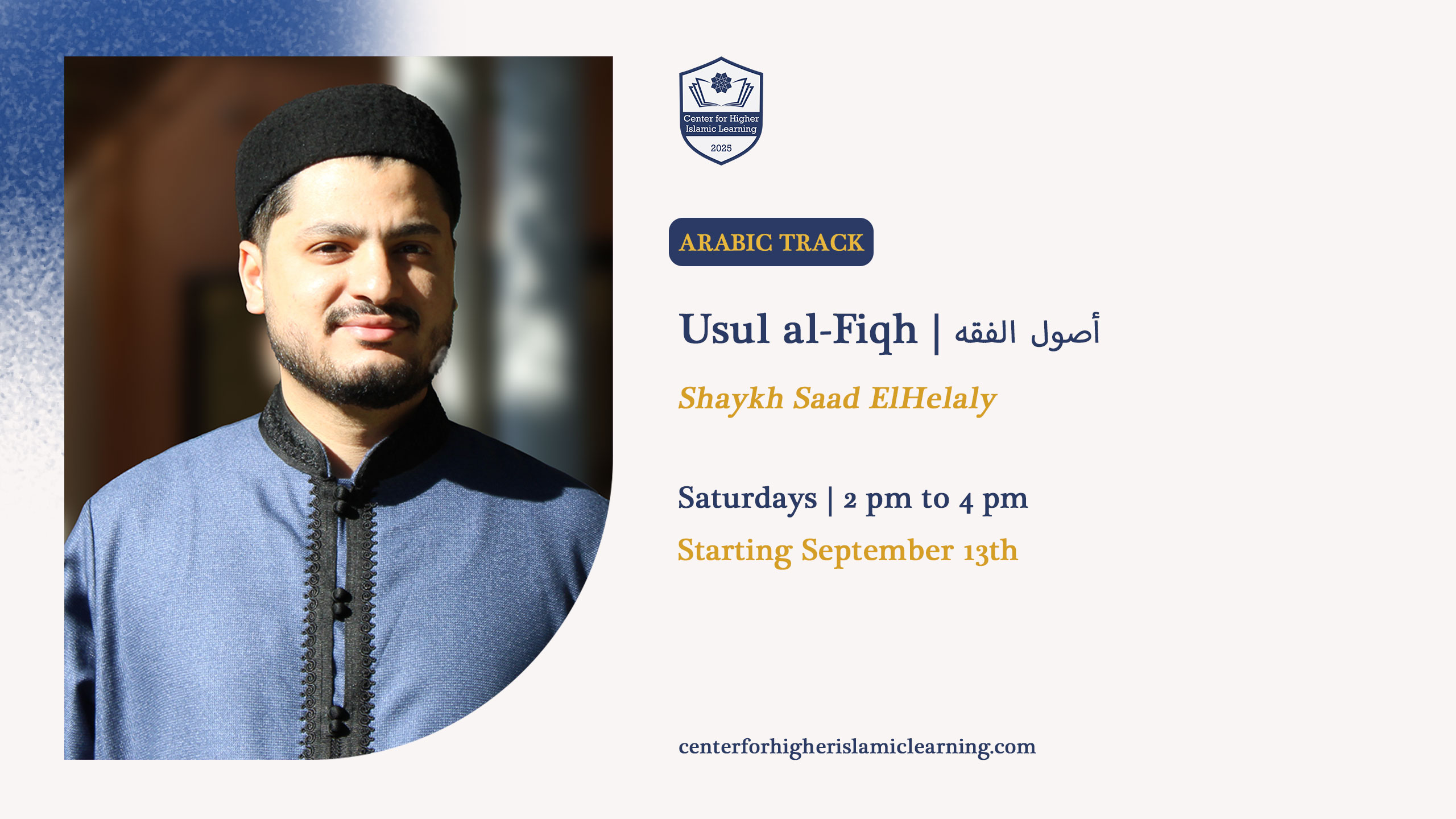
About Course
Saturdays | 2 pm to 4 pm
Starting September 13th!
This course explores the foundations of Islamic legal theory through a structured study of:
يدرس هذا المقرر أسس النظرية الفقهية الإسلامية من خلال دراسة منهجية تشمل ما يلي:
-
Legal Rulings | الأحكام الشرعية
واجب، مستحب، مكروه، حرام، مباح -
The Legislator | الشارع
الكتاب، السنة، الإجماع، القياس، ومصادر أخرى -
The Act of the Mukallaf | المحكوم فيه
مدى التيسير أو التعذر في تطبيق الحكم -
The Mukallaf | المحكوم عليه
أهلية الإنسان للتكليف واعتبارات البلوغ والمسؤولية
Course Content
Week 1 | الأسبوع الأول
-
What is Usul al-Fiqh? | تعريف أصول الفقه وتاريخه
-
Categories of rulings | الأحكام: واجب، مستحب، مباح، مكروه، حرام
-
المحاضرة الاولى
Week 2 | الأسبوع الثاني
Week 3 | الأسبوع الثالث
Week 4 | الأسبوع الرابع
Week 5 | الأسبوع الخامس
Week 6 | الأسبوع السادس
Week 7 | الأسبوع السابع
Week 8 | الأسبوع الثامن
Week 9 | الأسبوع التاسع
Week 10 | الأسبوع العاشر
Week 11 | الأسبوع الحادي عشر
Week 12 | الأسبوع الثاني عشر
Week 13 | الأسبوع الثالث عشر
Week 14 | الأسبوع الرابع عشر
Week 15 | الأسبوع الخامس عشر
Week 16 | الأسبوع السادس عشر
Earn a certificate
Add this certificate to your resume to demonstrate your skills & increase your chances of getting noticed.

Student Ratings & Reviews

No Review Yet
